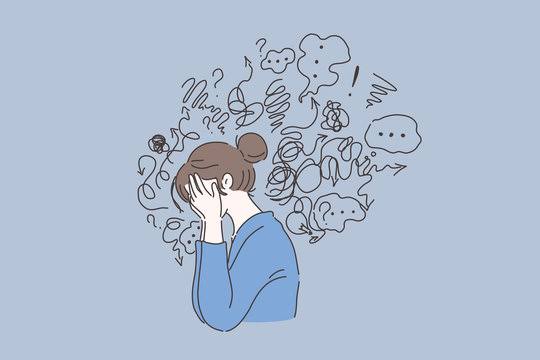#mentalhealth
#MentalHealthMatters
#MentalHealthAwareness
Overjustification Effect: The phenomenon where the introduction of external rewards or incentives for an intrinsically motivated behavior leads to a decrease in intrinsic motivation.
#MentalHealthMatters
#MentalHealthAwareness
Overjustification Effect: The phenomenon where the introduction of external rewards or incentives for an intrinsically motivated behavior leads to a decrease in intrinsic motivation.

🍄 Undermining Intrinsic Motivation: External rewards can undermine the inherent enjoyment and personal satisfaction derived from an activity, reducing the individual's motivation to engage in it.
🍄 Shift in Focus: The introduction of extrinsic rewards shifts the person's focus from the intrinsic value of the activity to the desire for the external reward, diminishing their intrinsic motivation.
🍄 Perceived Loss of Autonomy: The overjustification effect can make individuals feel that their autonomy is compromised because they now feel compelled to engage in the behavior for the sake of the reward.
🍄 Diminished Sense of Competence: When external rewards are introduced, individuals may question their own competence, thinking that they need the reward to perform the activity well.
🍄 Dependence on Rewards: Over time, individuals may become more reliant on external rewards and lose the ability to engage in the behavior without them.
🍄 Decreased Interest: The overjustification effect can lead to a decline in interest and enjoyment of the activity when it is no longer driven primarily by intrinsic motivation.
🍄 Contingent Rewards: Rewards that are explicitly tied to the performance of a specific behavior are more likely to undermine intrinsic motivation than unexpected or surprise rewards.
🍄 Individual Differences: The susceptibility to the overjustification effect can vary among individuals based on factors such as personality traits, age, and cultural background.
🍄 Long-Term Consequences: If external rewards are eventually removed, individuals who have experienced the overjustification effect may disengage from the behavior, leading to a sustained loss of motivation.
🍄 Task Complexity: The impact of the overjustification effect may be influenced by the complexity of the task. Intrinsic motivation for simple tasks may be more easily undermined than for complex tasks.
🍄 Intrinsic vs. Extrinsic Rewards: The overjustification effect highlights the potential conflict between intrinsic and extrinsic motivation and the need to find a balance between the two.
🍄 Intrinsic Motivation Sustains: When individuals engage in an activity primarily for the inherent enjoyment or personal interest it brings, their motivation is more likely to be sustained over time.
🍄 External Factors: Environmental factors, such as the presence of rewards or praise from others, can shape individuals' motivation and influence the occurrence of the overjustification effect.
🍄 Fostering Intrinsic Motivation: To mitigate the overjustification effect, it is important to focus on nurturing intrinsic motivation by emphasizing the personal meaning, autonomy, and competence associated with the behavior.
@threadreaderapp unroll
• • •
Missing some Tweet in this thread? You can try to
force a refresh

 Read on Twitter
Read on Twitter









